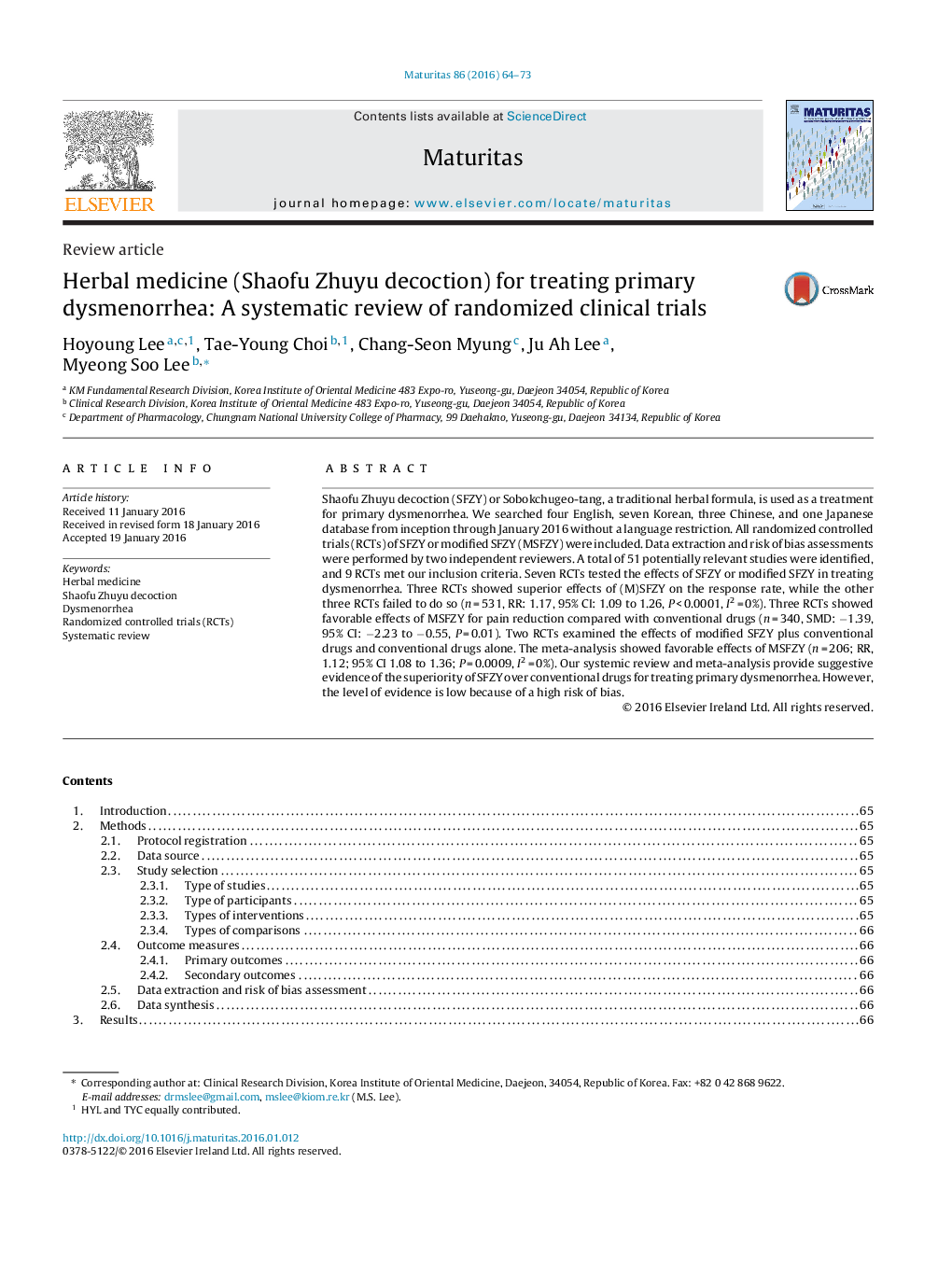| Article ID | Journal | Published Year | Pages | File Type |
|---|---|---|---|---|
| 1917041 | Maturitas | 2016 | 10 Pages |
•Shaofu Zhuyu decoction (SFZY) is a Chinese herbal medicine (CHM) for treating dysmenorrhea. Currently, no systematic review is available for this treatment.•Nine randomized clinical trials (RCTs) met our inclusion criteria. All of the included RCTs had a high risk of bias.•Our systematic review and meta-analysis provide suggestive evidence of the superiority of modified SFZY (MSFZY) or MSFZY plus conventional drug therapy over conventional drug therapy only for treating dysmenorrhea.
Shaofu Zhuyu decoction (SFZY) or Sobokchugeo-tang, a traditional herbal formula, is used as a treatment for primary dysmenorrhea. We searched four English, seven Korean, three Chinese, and one Japanese database from inception through January 2016 without a language restriction. All randomized controlled trials (RCTs) of SFZY or modified SFZY (MSFZY) were included. Data extraction and risk of bias assessments were performed by two independent reviewers. A total of 51 potentially relevant studies were identified, and 9 RCTs met our inclusion criteria. Seven RCTs tested the effects of SFZY or modified SFZY in treating dysmenorrhea. Three RCTs showed superior effects of (M)SFZY on the response rate, while the other three RCTs failed to do so (n = 531, RR: 1.17, 95% CI: 1.09 to 1.26, P < 0.0001, I2 = 0%). Three RCTs showed favorable effects of MSFZY for pain reduction compared with conventional drugs (n = 340, SMD: −1.39, 95% CI: −2.23 to −0.55, P = 0.01). Two RCTs examined the effects of modified SFZY plus conventional drugs and conventional drugs alone. The meta-analysis showed favorable effects of MSFZY (n = 206; RR, 1.12; 95% CI 1.08 to 1.36; P = 0.0009, I2 = 0%). Our systemic review and meta-analysis provide suggestive evidence of the superiority of SFZY over conventional drugs for treating primary dysmenorrhea. However, the level of evidence is low because of a high risk of bias.
